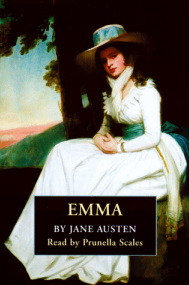 Interesting. Every month in our Teen Book Club, we have two book choices. The students nominate the book choices, we vote on them, and then we select two books so that the students have a variety of topics, reading levels, and controversial elements. We always have at least one safe choice so parents don't have to worry about the content. This past month, one of our book choices was Emma by Jane Austen. I, as the instructor of book club, was the only person to actually read Emma. Once the students took a good look at the book, they realized it was longer than they'd anticipated, the language was challenging, and the action was a little slower than what they are accustomed to considering modern YA book choices. Well. I read it none-the-less. My previous experiences with Jane Austen include only Pride and Prejudice so I had little experience with the author's works, and for about the first one hundred pages of Emma, I wondered what I had gotten myself into. The book focuses on Emma, of course, a young woman who fancies herself a match maker and tries to get her friends paired up. She is quite choosy, though, concerning who should be with whom and soon talks her friend Harriet into turning down a young man who really would have been a good choice. And that was when the book became interesting. Yes, it took me about a hundred pages to get interested in Emma. But when I realized that she was actually not a reliable narrator, that her point of view was skewed, that the author was giving the reader all sorts of clues belying Emma's understanding of situations around her, that was when I began to see the power and strength of the writing. The book is not simply about wealthy people making sure they do not marry below themselves; it is about the reader understanding the truth of the situation when even the main character is unable to. So. I had this discussion with myself and then went on to discuss our other book choice for book club. Hopefully some of the students will pick it up in the future.
3 Comments
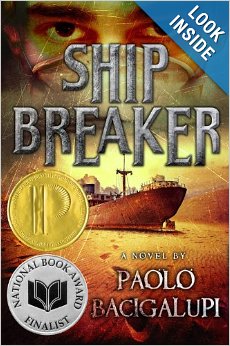 Some of the students in book club are very tired of reading dystopian literature. We have read Divergent, The Hunger Games, Maze Runner, and the list goes on and on. But when Ship Breaker was added to the list and tackled this past month, the students had a very different reaction. They loved it. Why? What makes this book a little different from the others? My students immediately took note of a language difference. Bacigalupi is a master craftsman of language and this comes out through the book. His descriptions are beautiful, lyrical, and eloquent. The writing is strong and certainly added to the power of the book. Another element that Ship Breaker presented in powerful form was the consistency and strength of the world building. Even though the beginning of the book takes some time to adjust to since the main character is crawling around in the belly of a ship and lands in a pocket of oil, we soon orient ourselves as readers and can easily follow the events in this world because they are so grounded in detail. As readers, we believe this world. A question that came up again and again, though, had to do with the half-men. These creatures are treated as less than men because they can not think for themselves, but are owned and loyal to their masters. What exactly do these men look like? We are given a vague description of a dog, a man, tiger DNA, a hyena, and tattoos, but we don't get the complete picture and this was something we all wanted to see more clearly. It just so happens that Bacigalupi has written another book and I wouldn't be surprised if it made it onto our book club list for next semester. I'm always so happy when the teen book club is underway once again. I miss it! I miss the enthusiasm of the readers, I miss the new books they bring to the table, I miss the discussions and disagreements; and now we have selected our books for second semester so we can move forward once again.
And the book selections are: March: Emma by Jane Austin Ship Breaker by Paolo Bacigalupi April 3rd: Gone by Michael Grant The Circle of Law by Lia London April 24th: Bound by Kira Saito The Count of Monte Cristo by Alexandre Dumas May: Guardians of the Galaxy Tiger's Curse by Colleen Houck June: Insurgent by Veronica Roth Maze Runner by James Dashner One of my book attendees has been with the club for three years now and he is a huge proponent of the classics. His suggestions this time were accepted in droves, which usually doesn't happen, so we've got a few classics in our list. Mixing up the classics with the contemporary YA texts is a really fascinating combination and brings about discussions that feel relevant and appropriate. Examples: What makes something a classic? Why do classics stand the test of time when some YA books don't? Considering current popular YA fiction, which books might wind up as classics and which books will move toward obscurity? Such great discussions...and may the new season of book club begin. We had quite the disagreement in our Teen Book Club as to whether or not we should even read the book Unwind by Neal Shusterman. When the concept of unwinding was explained to the students, many of them decided that the idea was way too creepy and they didn't want to read a book about it. To give a brief definition, "unwinding" in this book is the process of taking a person apart to use all of his/her body parts. In the society that Shusterman has created, parents or the state can decide to have their teenagers unwound between the ages of 13 and 18. The adolescents are told that they aren't actually dying because their body parts will continue to live on in other people who need those parts. Yes, it's a strange concept and no, I don't believe our society will embrace this procedure. And yet, it's not completely bizarre. We immediately discussed the idea of abortion and if it is better or worse for the child to be conscious of the decisions to be terminated. Is it better for kids to know that they are being unwound or should it occur before consciousness does? I must say, some of the students became very incensed about the topic and soon we were wondering when a person is a person or when the soul is created. “I agree that we don’t have a soul until someone loves us, just like the character said in the book.” “No, we have souls as soon as we have bodies. We have souls before we’re born.” “How do you know?” “If the heart beats, that person is alive and has a soul.” "Which would make abortion wrong." "It is wrong." Aiieee. And that is where the conversation went. I try very hard to not direct the conversation unless it is completely off task, and I really enjoy listening to the students develop arguments, take a stance, and get into a debate, but at some point, we had to agree to disagree on this particular topic. The book is fantastic for triggering conversations and getting to societal issues that are relevant and real. The teenagers in book club loved the book and yet, found it unsettling. It made them think about current practices in our society, and it made them think about their own behaviors. That's why we love reading - it brings us closer to life.
 I was surprised and not surprised by the book club's Christmas wish list. I was not surprised by the desire for the two follow-up books after Divergent since the students loved that book and want to read the next one before the movie comes out in the spring. I was a bit surprised by the Kurt Vonnegut book, Cat's Cradle. When students take risks, go outside of the current popular books and best sellers, I remember what it means to be a teen reader - how I loved some of those classics when I was their age, and how we sometimes overlook the literary greats in our attempts to hook kids into reading. Yes, The Catcher in the Rye is still a book that some students fall in love with. They appreciate Holden's critical eye and recognition of all things phony. Yes, students fall in love with language all over again when they read Dickens, Fitzgerald, Shakespeare. Yay to kids who want to delve into Tolkien and take on The Silmarillion. You know what? Kids do still read the challenging works and I love it when I see that. My book club's Christmas wish list: 1. Insurgence 2. Allegiance 3. Will Grayson, Will Grayson 4. Kill you Twice 5. Skin Jacker Trilogy 6. The Silmarillion 7. Ender's Game 8. Earth Awakens 9. Hunger Games Trilogy 10. Cat's Cradle 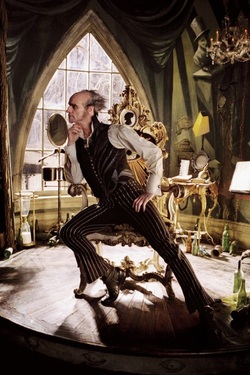 I saw, recently, that Lemony Snicket had been present at a local Portland bookstore, signing books. I missed the event. I was very intrigued to discover who this Lemony Snicket character might be. I understand that Daniel Hadler writes under the pen name, Lemony Snicket, but who shows up for a book signing when the author's name is Lemony Snicket? Would that be Daniel Hadler or someone acting the part of Lemony Snicket? Hmm. About ten of the students in the book club read "A Series of Unfortunate Events" book #1. It was a fast, easy read for these teenagers and even though they liked it, they were pretty quick to criticize, which here means finding fault. Most of them did not seem to understand the humorous technique that the author employs of using a somewhat difficult word and then defining it for the reader. Example: "Violet was sleeping fitfully - a word which here means "with much tossing and turning" - on the lumpy bed." (81). The high school students were highly critical of this technique, claiming that it felt patronizing, which here means talking down to. "But what about the humor?" I asked. "It's not funny," they claimed. "What about when he describes "adversity" as "Count Olaf"?" "Well, that was slightly hysterical, which here means extremely funny, but that was the only one." "Did you get that sometimes the definitions weren't quite right?" "Well, duh," they said, which here means that is really obvious and stupid. I have to admit that when a teenager says "duh," it's really difficult to come up with a witty comeback. After the discussion, I felt that these students were a bit too old for the book. Honestly, there seems to be a weird middle ground where teens are too old for middle grade books, and then they like them again when they're young adults. I'm not sure why this is except that perhaps we become more accepting when adults, a little less hyper critical, and we can acknowledge the humor without feeling condescended to, which here means patronized.  On Thursday, November 21st, book club met to discuss our book choices for this month. We had chosen to read books from two different series: Divergent by Veronica Roth, and A Series of Unfortunate Events by Lemony Snicket. What we ended up discussing was why book series seem to be so popular and what to do when we hit on a good one. According to our discussion, the main reason book series seem so popular is that when students find something good, they stick with it. Isn't that the truth. If we go back to past series, ones that I would have read when I was a kid, The Narnia Chronicles, Anne of Green Gables, and The Little House on the Prairie all come to mind. I'm pretty sure that I read every Bobbsey Twins book I could find. We had The Hardy Boys, Nancy Drew, and The Lord of the Rings. These are great books and why would we read just one when the story leaves you hanging and when the development of those characters and that plot line are so powerful? Yes, we love series because when we find a really good book and well-developed characters, we have a hard time saying goodbye to them. Where does that leave us in our book club? The problem with a series in book club is that we have a difficult time reading just one book and then putting it aside. Students want to read the next book in the series and if we move on to a different choice, we might lose some of that initial enthusiasm for the book. And yet, the purpose of our teen book club is to discover books out there that really peak our interest. If we settle on one type of book and don't stretch ourselves to discover others, we are limiting our exposure to books, which is not the point of reading and discussing. The other issue with reading only one type of book is that sometimes that particular series doesn't work well with some of the readers in the club. They then become frustrated with our book selections and might discontinue their enrollment in the club or they might limit their comments. Definitely not what we'd like to see. So yes, we decided that reading the first book in a series is fine, but then the members of the club may need to read the next few in the series outside of the club. And we decided that's okay. Will we continue reading the Divergent Series and The Series of Unfortunate Events? Of course, but not in a group setting. For next month, we'll be reading Dicken's Oliver Twist. 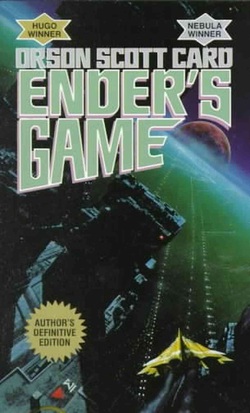 We chose to read Ender's Game as one of our book selections for the end of October. Ender's Game is one of those books that really hits home with kids. The protagonist is a misfit who is brilliant and gifted, the adults in the book are manipulative and, well, demented, and the lesson to be learned from the book is valid. The discussions in book club were fantastic. Because the adults in the book manipulate the children, we spent quite a bit of time discussing whether or not this is justifiable. And you know what? The students claimed that it was. The adults, according to the students, are justified in their manipulation because in the end, they are simply trying to build an adequate general to fight off the buggers. We also discussed how far Ender goes to protect himself. In two different situations within the book, Ender fights another boy, and fights him to the point where he knows the boy won't come after him again. This brought up issues of bullying and many of the students at our little charter school have been bullied. The students claim that again, Ender did the right and justifiable action; otherwise he would have been severely hurt himself. I have to admit, I was on the other side of this one and didn't agree, but I was voted down. Lastly, we discussed the ultimate message of the book. Is it okay to destroy another species (or culture) simply because we are unable to communicate with them, and why do humans seem to react in this way so quickly and often? We sited many examples from history where wars were started due to lack of communication, and where a culture was decimated because another culture didn't understand them. This is a profound and honest look at who we are as human beings and it makes us examine our priorities and aggressive techniques. This is a great book to discuss with adolescents. So many of the issues relate to their lives in some way and many of the themes contain multiple points of view. Thanks, Orson Scott Card, for developing a book that teens relate to on a personal level, but also brings them to a level of thinking that goes beyond black and white. Well, the October meeting for the teen book club was a very interesting meeting. About half of the students had read 100 Cupboards by N.D. Wilson, and the other half had read The Princess Bride by Goldman.
Now, if you've ever seen the movie of The Princess Bride, you know that the story has a good deal of off-beat humor and pretty hysterical characters. The book is no different. In fact, the movie follows the book very closely, but only the story of Buttercup and Wesley. In the book, there is a whole other story that makes a superficial appearance in the movie. It is the story within a story. This is where it got interesting in book club. Because the book seems to walk a line between fiction and non, the students debated how one should read the book. Obviously the story about Buttercup and Wesley is fiction. There just aren't any ROUSs around. But the story built around Buttercup's story is partially true. Goldman includes himself in the book, along with his son, wife, grandson, publisher, contacts in Florin and Stephen King. Some of his included life seems to be true - Goldman really did work on the screen play for Butch Cassidy and the Sundance Kid, and we all know that Stephen King is alive and well. But what about his son? What about the wife he writes about who isn't terribly affectionate and overanalyzes his every move? Are they real? And if not, how do we know what's real in the book and what's not? Here's what the students decided: Believe what you will. We debated for a good twenty minutes on the differences between reading fiction and non. When these particular teens read fiction, they don't care about honesty, research or truthful telling. They just want a good story. But when these teens read nonfiction, they want the truth. They want it well documented, they want to be able to look up the information and confirm authenticity, and they want honesty. Somehow, this book walks the line between fiction and non. And you know what? The teens in my book club did not care. They LOVE this book. They love the story in a story; they love the reference to Stephen King; they love the background story of Fezzig. When I informed the students that Goldman doesn't actually have a son, but has two daughters, one of the girls screamed in frustration and told me I'd ruined the book for her. She decided that she would believe what she wanted and if she wants Goldman to have a son, then that's what she's going to believe. And I decided that I wouldn't tell her that Stephen King does not actually have any relatives in Florin. |
Chris Struyk-Bonn
I have had a few jobs in my life that I didn't enjoy: detassling corn, working in a small motor parts factory, framing pictures, serving food, and rejecting bad eggs in an egg factory. Today, I take part in a book club for teens and I love every minute of it. Archives
July 2015
Categories
All
|
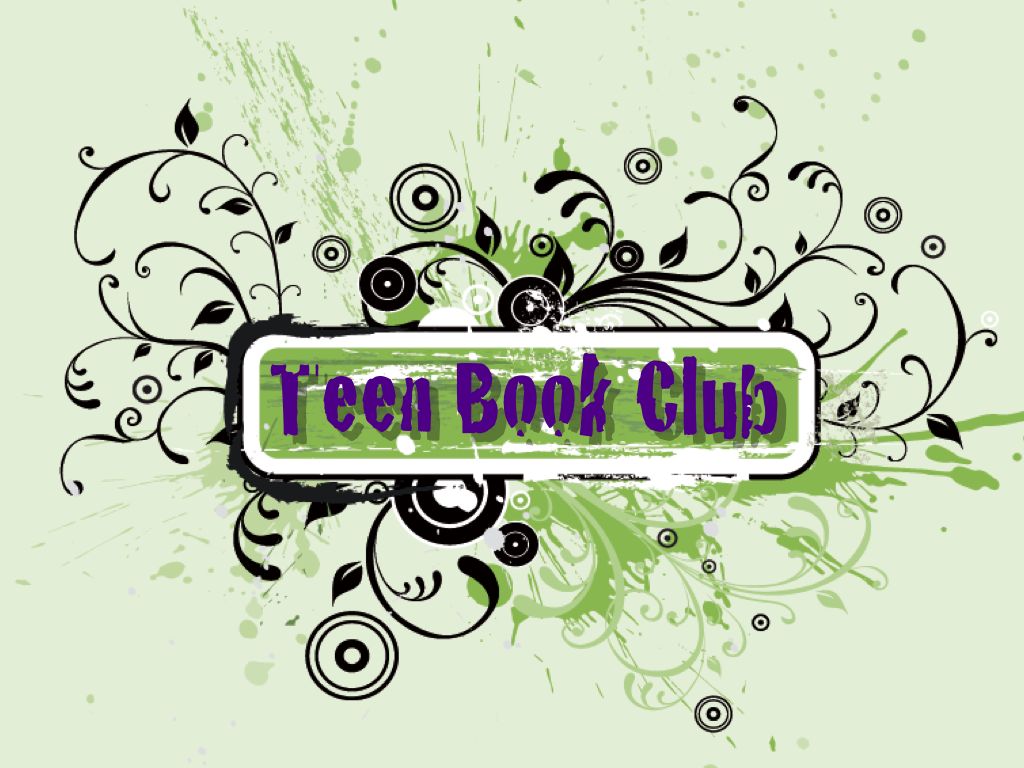
 RSS Feed
RSS Feed
